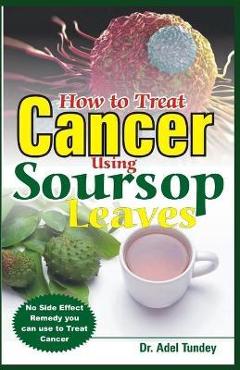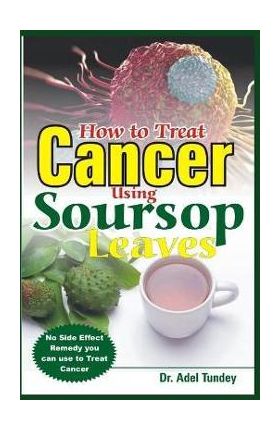Cosul este gol

How to Treat Cancer Using Soursop Leaves: No Side Effect Remedy you can use to treat Cancer - Adel Tundey
Comparati
Codul produsului: 27056155
Conectează-te ca să te putem notifica când primești un răspuns
Cancer is the second leading cause of mortality worldwide. Over 10 million new patients are diagnosed with cancer annually with over 6 million associated deaths, representing roughly 12% of worldwide mortality. The occurrence of new cancer cases is expected to grow by about 70% over the next two decades and estimated to reach over 15 million new cases diagnosed annually by the end of year 2020. This rapid increase is due to both an aging and growing population, along with carcinogens, infections, genetic mutations, hormones, immune conditions, and the adoption of behavioral and dietary risk factors, such as smoking, unhealthy diet, physical inactivity, and environmental pollutants. The risk factors may act singly or in concert to cause mutation of normal cells. Many of these mutations alter the expression or activity of key gene products, causing unregulated cell division leading to cancer. Currently, the main cancer treatment modalities are surgery, radiation-based therapy, chemotherapy, gene therapy, and/or hormonal therapy, either singly or in combination. The most commonly used chemotherapy drugs are antimetabolites, DNA-interacting agents, antitubulin agents, hormones, and molecular targeting agents, all of which work to destroy cancerous cells or limit their proliferation. However, most cytotoxic drugs act on both cancerous and healthy cells and therefore elicit side effects such as hair loss, bone marrow suppression, drug resistance, gastrointestinal lesions, neurologic dysfunction, and cardiac toxicity. Consequently, development of new anticancer agents with higher efficacy, selectivity, and little or no side effects is an urgent goal.Natural products, especially phytochemicals, have been used to help mankind sustain health since the dawn of medicine. Phytotherapy (also called herbalism or herbal medicine) has provided remedies for ailments, including cancer, to the present day. Dietary phytochemicals have many built-in advantages over synthetic compounds due to their proven safety, low cost, and oral bioavailability. However, it is only recently that researchers have begun to elucidate the mode of action of plant-derived agents at the molecular, cellular, and tissue level. Many natural products have now been extensively researched, and numerous compounds have exhibited anticancer and other beneficial actions in modern controlled studies. Most anticancerous natural products interfere with the initiation, development, and progression of cancer b


